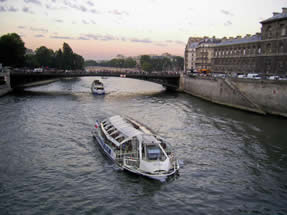Mary McDermott

“The Plight of Nursing” from a collection of poems by Carol Battaglia, a retired nurse practitioner at Loyola Medical Center, concludes: “Sometimes at the end of my shift, I cannot account for all of me. I retrace my steps, in hopes of putting myself back together again.” (Carol Battaglia Murmurs. 1996. p. 33. Long Branch, N.J.: Vista Publishing).
Battaglia’s words have implications for nurses in the workplace and in their leisure activities. We need a way to retrace our steps. Journaling is a reflective practice that can literally provide a “surface” to do just that. I often used to say that I did not know what I thought until I said it aloud; now I am quite sure, I do not know what I really think until I write it down. Nurses need to seek quiet time to put themselves back together at the end of the day. Journaling requires tranquility to put aside the clutter and give attention to the page, to connect to ourselves. Processing information in journal writing can be transformational. Connections are made, patterns of thinking are examined. Our attitudes can even be altered.
I can hear many of you saying “no time!” Journaling does take time, so does everything else! Journal keeping is one way to savor, digest, monitor and discover ourselves and our preferences and it serves as an antidote for overdosing at work and while traveling.
Participants in our summer 2008 art and healing study tour in France sponsored by the Hektoen Institute were encouraged to live this tour as a pilgrimage in its broad spiritual sense, like a journey to find what matters deeply, eventually leading to personal transformation. Therefore, they were encouraged to engage in the ritual of daily journaling. Prior to the trip, they were asked to make an initial journal entry: Why Paris, Why Now, Why Me? In my own journal, I wrote about my previous vacations experiences in Paris and how my expectations for this study tour were quite different. The intent, the number and variety of participants and my own role as a co-facilitator would provide a very different context.
Participants were requested prior to the study tour to take some time to reflect and respond to some questions about the arts (art, music, and literature) in their lives. Personal preferences were uncovered. Paris is full of art treasures and our group visited a number of museums. A caveat was issued, not to “overdose”; to select a few paintings or sculptures; one that they had on their favorite “must see” list and another that caught their eye while strolling through the museum. They were asked to linger a while and really “see” the work and then to take time to journal about the piece. This practice of limiting our viewing was/is a difficult discipline; however all agreed is one which can enhance our enjoyment of art.
Paris is known as the City of Light. Listening to some of their subsequent entries, their writing was quite reflective. It shone back! Participants wrote about standing in the light streaming through the gorgeous stained glass windows of Sainte Chapelle and gazing at the light at different times of the day over the River Seine. They reflected on the way that the Impressionists experienced and portrayed the light as it impacts colors and atmosphere. They commented on learning to see through the veil of first impressions when making nursing assessments, as well as finding enlightenment as they walked the medieval Labyrinth at the Chartres Cathedral. One person brought individual tapers to the farewell dinner and each woman spoke about being or enjoying the light during their study tour as they passed the light on to another.
I will never again think about or re-visit Paris without recalling the new insights gained from the reflections shared through journaling. One of my own last journal entries was done on the return flight: “Twenty six women’s lives intersected with mine during this brief study tour…temporary kinship, but who is to say length is the yardstick by which to measure such relationships.” Nursing is increasingly about very temporary relationships with both patients and even with staff. Through the journaling I did during this time, I will long remember the wonderful women who shared their light with me!
Note
- There are lots of books and articles about journaling that someday in your leisure you might like to read. My own favorites are the very popular Julia Cameron books, but particularly one of her first: The Artist’s Way (1992) published by Tarcher Putnam and a book by Ronald Klug (1993) How to Keep a Spiritual Journal, Augsburg Press.
, EdD, FAAN is Professor Emerita Niehoff School of Nursing, Loyola University Chicago. She is also a member of our Editorial Board.
Highlighted in Frontispiece Winter 2009 – Volume 1, Issue 2

Leave a Reply